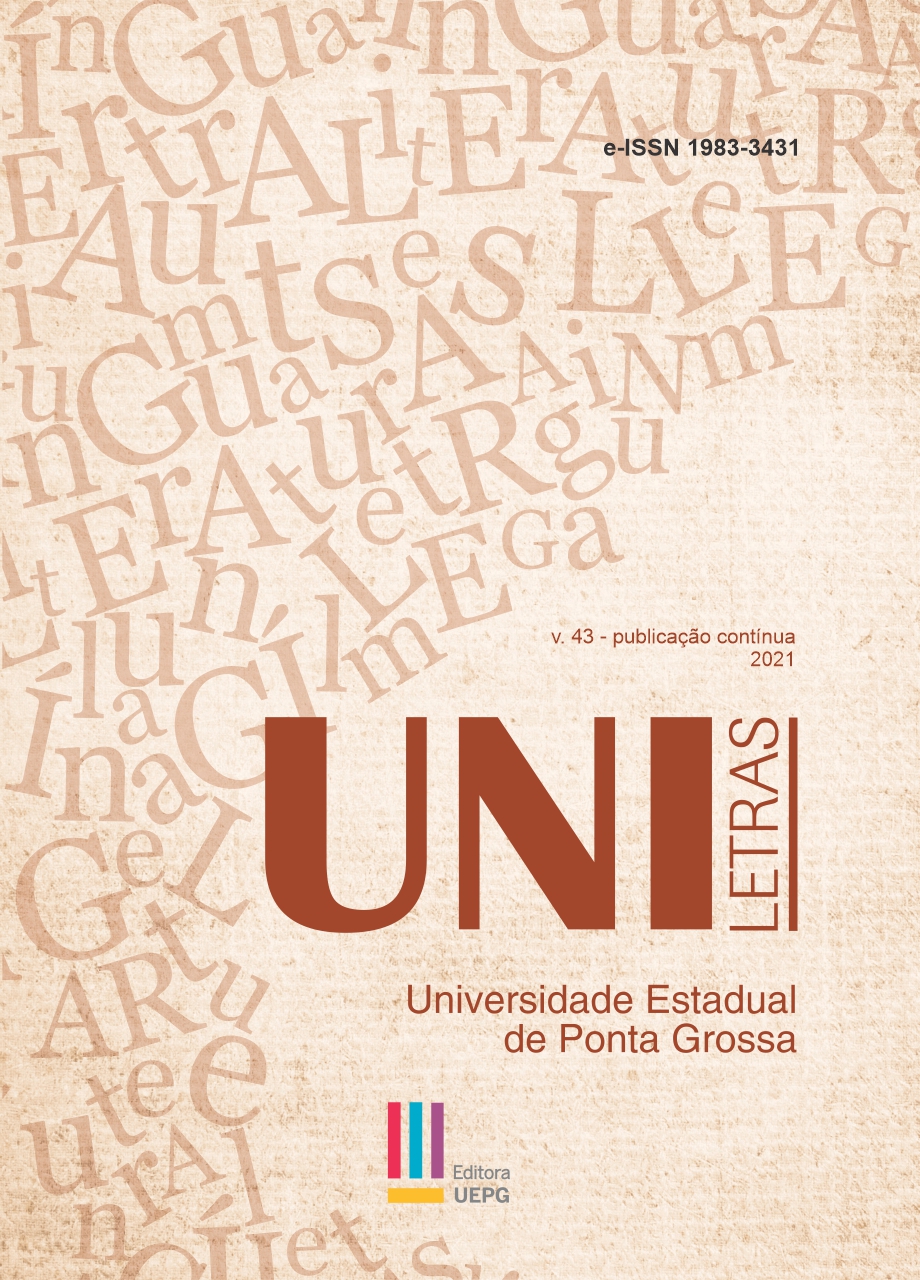USOS DO VERBO “FICAR” NO PORTUGUÊS BRASILEIRO SOB A ÓTICA DA SEMÂNTICA-ENUNCIATIVA
Resumo
Com base nos apontamentos da Teoria das Operações Predicativas e Enunciativas (TOPE), de Antoine Culioli (1999), este artigo tem o objetivo de observar, descrever e analisar, pelo viés semântico-enunciativo, os usos do verbo “ficar” em dez enunciados extraídos e adaptados do site “Curso Vila Brasil”. Para Culioli (1999), a construção de sentidos dos enunciados acontece no momento da interação entre os interlocutores na qual o cotexto, o contexto e os sujeitos são peças essenciais para essa atividade de enunciação. Além dos pressupostos da TOPE, o embasamento teórico do artigo está pautado nos estudos de Silva (2016) e de Franckel (2011). Esses estudos sugerem a apresentação da identidade de um lexema analisado a partir da verificação das variações de sentido em contextos de enunciação diferentes. Os resultados obtidos mostram as identidades semânticas construídas por meio da variação do sentido do verbo “ficar” em ocorrências analisadas pela ótica semântico-enunciativa.
Downloads
Downloads
Publicado
Edição
Seção
Licença
Autores que publicam nesta revista concordam com os seguintes termos:
a) Os autores mantém os direitos autorais e concedem à revista o direito de primeira publicação, com o trabalho simultaneamente licenciado sob a Creative Commons Attribution License que permite o compartilhamento do trabalho com reconhecimento da sua autoria e publicação inicial nesta revista.
b) Esta revista oferece acesso livre imediato ao seu conteúdo, seguindo o princípio de que disponibilizar gratuitamente o conhecimento científico ao público proporciona maior democratização mundial do conhecimento. Para maiores informações sobre esta abordagem, visite Public Knowledge Project, projeto que desenvolveu este sistema para melhorar a qualidade acadêmica e pública da pesquisa, distribuindo o OJS assim como outros softwares de apoio ao sistema de publicação de acesso público a fontes acadêmicas. Os nomes e endereços de e-mail neste site serão usados exclusivamente para os propósitos da revista, não estando disponíveis para outros fins.

This work is licensed under a Creative Commons Attribution 4.0 International License.





